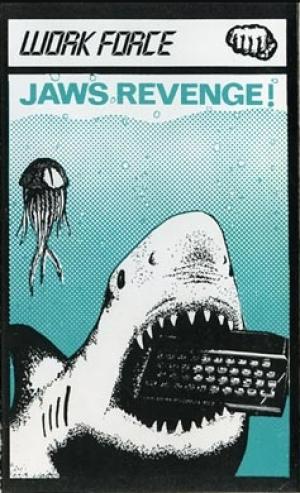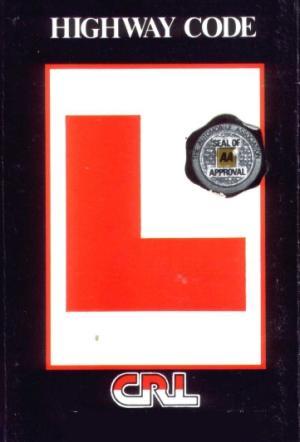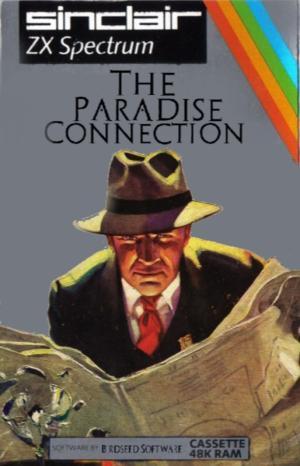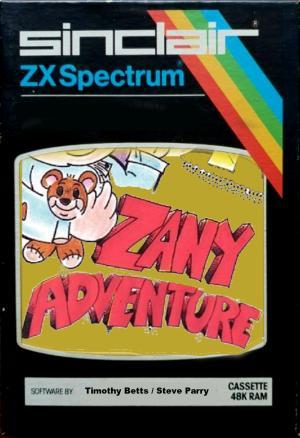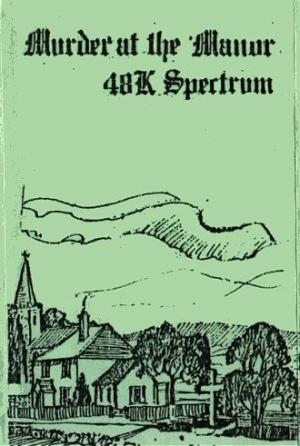
| Console: | Sinclair ZX Spectrum |
| TV Standard: | Region Not Set |
| Publisher(s): | Gemtime |
| Release Date: | 1983-09-12 |
| Co-op: | No |
MURDER AT THE MANOR by Gemtime
The New Adventure Game For The 48K Spectrum User
1. THE STORY SO FAR
In a quiet country manor, a rumor circulates. "The Squire of the Manor has
purchased a set of valuable gold coins."
One dark, windy night, as the moon rises slowly into the mist, a figure
appears outside the Manor House. Quietly scaling the wall the thief reaches the
Squire's bedroom...
The Squire, dosing in an arm chair is disturbed. He sits up alert, but
uncertain. From above, sharp taps are heard. He decides to investigate and,
grabbing a sharp poker, cautiously ascends the stair.
Meanwhile the thief's attempt to open the safe is a failure. In desperation
he searches the room, looking for other valuables. A small notebook is his only
find, in which, surprisingly, the safe combination is given. Ripping the page
from the book, the safe is opened and robbed.
Opening the door, the Squire spots the thief making towards the window.
Pulling him back into the room a fierce fight ensues. However, the Squire, an
older man, is soon overpowered and falls to the ground dead.
The murderer now makes good his escape scattering the pieces of notepaper
throughout the area to avoid detection.
Next day, the murderer fits back into his usual life style, confident he will
never be detected. But unknowingly a vital clue remains in the safe, if only it
can be opened...
2. YOUR INVESTIGATION
After discovery of the body, the police set about their investigation. For the
local policeman this was his first murder enquiry and it left him baffled.
Having heard of your reputation he calls you in to solve the murder without
having to report failure to his superiors.
On learning of the gold coin rumour you say,
"Looks like a local crime to me."
"Could be", snorted the policeman, "but it's strange that the safe combination
is missing. The Squire himself told me where it was kept. The murderer must 'ave
found it."
You reply revealing interest in the missing safe combination.
"Yes, you're right. I think my first priority must be to locate all the clues
to the combination. How many were there?".
"Five", answered the policeman.
Considering all this information you decide to search the local area for the
clues. On the way out the door you joke -
"I'll search the area this afternoon."
"That may not be so easy", he laughed.
"Why's that?"
""There's a lot of ground to cover. However if you ask around you may get some
help."
"Thanks", you shout, leaving the station in the direction of the town cross.
3. SCREEN DISPLAY
As you move about in the game, the screen display will show:-
(i) A full colour graphic representation of the location
(ii) A text description
(iii) Any special features of the location
(iv) The presence of any characters
(v) Status messages (such as a warning when your strength is low)
The graphic picture will stay on the screen, changing only when a new location
is entered. Note that some locations may contain many moves in which a map may
help avoid getting lost.
4. COMPUTER COMMUNICATIONS
The bottom line of the screen is used to enter your instructions. All words
are typed in lower case letters after the ">" symbol. No punctuation is required
although the use of a full stop will be discussed in section 9.
You can type such commands as:-
"pick up the knife" or
"fight the butler with the brick"
"drop the clue"
All are acceptable. The only limit being that sentences must fit the one line
of 31 characters.
If you make a mistake in typing, the 0 Key can be used to delete the last
letter. The normal Spectrum delete (caps shift and 0) will delete the whole
line. The computer will inform you if you enter a command it does not recognise.
Alternatively, if you give incomplete instructions (such as "fight"), you will
be asked for more information (e.g. "fight with what?") to which you can enter
a sub-command (such as "knife"). Note that you do not have to re-enter the full
command again. To exit from a sub-command (say you don't want to fight after
all), just press ENTER to start a new command.
5. MOVING AROUND
Each location may have up to four paths leading from it, north, south, west
and east.
A compass in the top left of the screen shows the direction you can move in.
For each point on the compass one of three symbols will be shown:-
(i) A blank- This implies that no path is present.
However, it does not mean that the way is
totally barred.
The description of the location may offer some
guidance.
(ii) An arrow head- This shows a path in the direction indicated.
(iii) A blocked arrow- This represents a closed path which can be
opened under certain circumstances.
To move in either of the four directions the commands "north", "south", "west"
and "east" can be used.
Alternatively the Spectrum cursor Keys (5-8) provide the fastest way of moving
about.
The command "run" can be used to move quickly in any direction e.g. the words
"run east" will move three locations east (or until the path is blocked).
6. CHARACTERS
On you travels you will meet members of the local population. You can ask them
for help in finding the five clues with a sentence like "ask policeman."
If he refuses to talk, keep trying, he may not have heard properly.
Whilst the policeman is a friendly character, some others may not be, so take
care when asking questions.
The computer keeps a notebook for you which you can see by typing "read
notes."
This will display any notes you have taken as well as any clues you have
found.
7. OBSTRUCTIONS
These can take many different forms such as doors, gates, fences etc. To pass
them just think of how you would do it in real life and type in a suitable
sentence.
For example you could say -
"open the toyshop door"
to gain entrance. Although there are doors in the town, some may be locked. If
you don't have the correct Key you may be stuck - or are you? Some thought will
provide answers.
8. FIGHTING
Obviously tracking a murderer will not be easy and your presence will cause
unrest amongst the locals. Even if unprovoked they may attack you.
To fight back you could say,
"fight the policeman with my hands"
which will invoke the desired response.
Alternatively there are other methods of dealing with violent characters. You
could shoot or throw heavy objects at them. Whatever you think best at the time.
9. ADVANCED COMPUTER COMMUNICATIONS
Most commands can be abbreviated to only a few letters. e.g. You could say
"fight the gardener with my feet" which is rather long but adds to the
atmosphere of the game. An abbreviated version could be "f with feet" where "f"
represents "fight." Experiment for yourself.
As stated earlier, the cursor keys can be used to move one location in the
direction chosen. Note that as these Keys can be used at any time, if used
within a sentence, all your typing will be ignored and the move executed.
You can have as many commands as you like on one line providing you type a
full stop between each one.
e.g. "search ground. pick rifle. north"
There are a few special commands:-
HELP - this will give some helpful information at the difficult points
of the game.
LOAD - loads in a new game from tape (NOTE - this command will not load
the rifle - just use the "shoot" command)
QUIT - aborts the current game
REST - stops the game until you press a Key
SAVE - save the current game on tape
VIEW - repeats the information given when you first entered the location
i.e. looks around you.
10. LIFE TIME AND PERFORMANCE
Naturally your first priority is to stay healthy. Walking around, your
strength will decrease slowly. However, fighting and other action activities
will use more strength. To replenish yourself food parcels are scattered about
the district which you can eat.
Murder at the manor operates its own time scale in which you start at 9 a.m.
on day 1. There is no time limit on completing the adventure although there are
some things you cannot do at night.
When darkness falls, your fears will rise especially if lost in a dark forest
or graveyard so don't be surprised if your strength decreases more rapidly.
By typing "score" the computer will display your:-
strength,
time and day,
percentage of locations covered,
number of notes and clues collected and your score.
Your score represents how well you are doing in your investigation. An expert
detective alone will gain 100%
11. OBJECTS
As well as food and clues there are may other objects. Some (like a Key) have
obvious purpose whilst others seem totally useless.
The command "search" will show if there any objects around whilst "pick" and
"drop" can be used to manipulate them.
"inventory" or abbreviation "i", will list the objects you are carrying.
You can also "pick all" and "drop all" but note that a maximum of two objects
can only be present at any location.
If you pick up a clue it will be automatically added to your note book so you
should drop it straight away to make room for other objects. You can carry five
objects at a time.
12. SUCCESS OR FAILURE
Whether you come to the end of the game by winning, dying or using the "quit"
option you will be asked to load in a new game.
A data file with the initial conditions has been saved onto the end of the
cassette - just after the game. Thus to play a new game simply load in this
file.
You can of course Load in any game you saved earlier and start from there.
Not that every time you load our file the murderers identity will change, as
will the clues and other features of the game.
13. CONCLUDING REMARKS
The best advice is to keep searching and conserve your strength whilst using
intuitional thinking to solve the problems and the murder. GOOD LUCK.
If you have any difficulties or can suggest improvements please drop us a
line.
CREDITS
Program, booklet, ideas - Allan Morton
Graphics - Keith Bolam & Allan Morton
All features of Murder at the Manor are copyright (c) 1983 by Gemtime
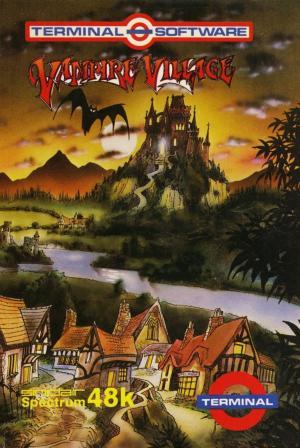
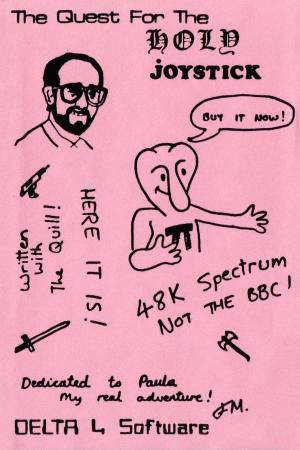
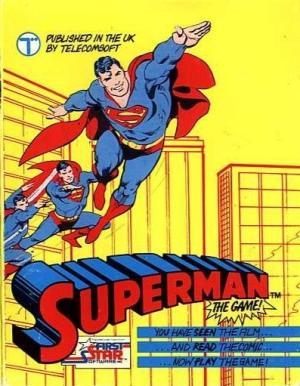
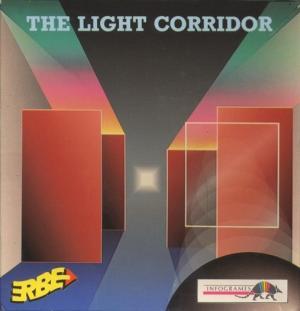
![Planetoids [ROM Cartridge]](https://gm.egamedb.com/planetoids-rom-cartridge-sinclair-zx-spectrum-fct.jpg)
